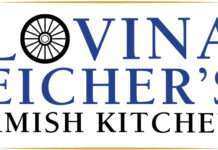Beef cattle experts outline ‘pillars’ for sustainable ranches
Environmental considerations important, but so are social, economic matters
MANHATTAN, Kan. — In agriculture, the word sustainability is often associated with environmental topics, but a senior official with the National Cattlemen’s Beef Association said it also has economic and social ties.
“The three pillars of sustainability are economic, environmental and social, and there are ways that cattle ranchers can impact each of these on a local level,” said Myriah Johnson, NCBA’s senior director of sustainability research and recent guest on the Kansas State University Beef Cattle Institute Cattle Chat podcast. NCBA is a contractor to the beef checkoff and her research is funded through checkoff support.
Johnson said producers need to first focus on economics; “If we don’t make money on our operations, they are not sustainable.”
K-State Research and Extension agricultural economist Dustin Pendell said “producers won’t know where they stand economically without collecting data. It is important to have benchmarks to measure by.”
Veterinarian and Beef Cattle Institute director Brad White advised producers to consider both income and expenses to find a balance between the two.
Another economic factor that also has environmental implications are transition plans.
“When thinking of transition plans, we focus on handing down the ranch from one generation to the next, but there is also an environmental impact in reducing land fragmentation,” Johnson said.
When land is fragmented, subdivisions often are created and new roads are built, which can lead to far-reaching implications for wildlife.
Johnson said that water management and the use of diesel fuel are two other environmental factors within a rancher’s control. “When we burn diesel fuel, that is a resource that can contribute toward greenhouse gases so we need to consider ways to be efficient in using that resource,” Johnson said, using an example of maximizing driving routes as one way to best use diesel fuel.
“Not only does that have environmental benefits, but it also has an economic advantage because there is a direct cost for running the truck,” White said.
Johnson’s third pillar is social sustainability: “Worker safety is an example of social sustainability. It is often something ranchers don’t think a lot about.”
She encouraged cattle producers to have “tailgate conversations” with employees where they discuss an emergency action plan and identify ways to reduce hazards.
An added benefit of these conversations, White said, is the likelihood of employee retention. “With planning and training, we are able to minimize employee loss,” he said.
Johnson and the K-State experts said six key points to manage sustainability on a cattle operation include:
- Create efficiencies wherever possible.
- Focus on employee retention to minimize loss.
- Develop a transition plan.
- Design a water management plan.
- Evaluate financial benchmarks.
- Manage safety protocols to benefit everyone.
To hear the full discussion about sustainability relating to cattle ranching, listen to the BCI Cattle Chat podcast online.
FOR PRINT PUBLICATIONS: Links used in this story
Beef Cattle Institute podcast, https://ksubci.org/media/podcast-2
K‑State Research and Extension is a short name for the Kansas State University Agricultural Experiment Station and Cooperative Extension Service, a program designed to generate and distribute useful knowledge for the well‑being of Kansans. Supported by county, state, federal and private funds, the program has county extension offices, experiment fields, area extension offices and regional research centers statewide. Its headquarters is on the K‑State campus in Manhattan. For more information, visit www.ksre.ksu.edu
Released: July 7, 2020
**This news release from K-State Research and Extension is posted online at www.ksre.k-state.edu/news/stories/2020/07/cattle-chat-sustainable-ranches.html
Story by:
Lisa Moser
785-532-2010
More information:
Dustin Pendell
785-532-3525
Brad White
785-564-7463




